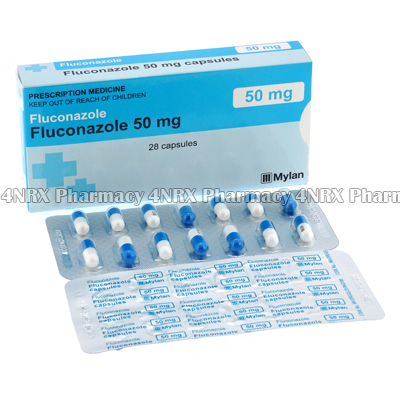 |
Home  Womens Health Womens Health  Fluconazole (Fluconazole) Fluconazole (Fluconazole) |
|
|||||||||
|
|
Fluconazole (Fluconazole)
What is Fluconazole (Fluconazole) used for? Fluconazole (Fluconazole) is an antifungal medication prescribed to treat a variety of fungal infections. It operates by preventing the reproduction of fungal cells so that the immune system may destroy it naturally. This makes it useful for infections of the lungs, mouth, bladder, or genitals. It should be noted that this medication is only meant to treat fungal infections and will have no effect on those caused by a virus or bacteria. Your physician may also prescribe it to treat other conditions that are not listed here. How should I use Fluconazole (Fluconazole)? Follow your physician's instructions for using Fluconazole (Fluconazole) to get the safest and most effective results. It is normally taken once each day, but your individual dosage and frequency of administration will be based on the severity of your symptoms and health condition. Always swallow the tablets with a large glass of water without splitting or crushing them as any alterations may destroy the contents or change their effects. It is also important to never make any unscheduled changes to your treatment as this may result in unexpected health complications. What are the side effects of Fluconazole (Fluconazole)? Some patients using Fluconazole (Fluconazole) have reported experiencing some side effects such as:
Tell your physician immediately if any of these symptoms become severe or if you encounter more serious side effects such as flu symptoms, skin rash, seizures, or jaundice. These conditions may require emergency medical assistance or changes to your treatment to prevent more problems from occurring. Please Note Strictly follow all instructions provided to you by your physician or pharmacist while using Fluconazole (Fluconazole). Optimum and safe dosage can differ based on the patient and the condition being treated. As this medication may be unsafe for certain patients, it is essential you always inform your physician if you are pregnant or breastfeeding, as well as if you have any allergies, other illnesses, or ongoing health conditions, and if you are taking any other form of medication, supplements, or herbal products. Immediately seek emergency medical care if you have an allergic or hypersensitive reaction. Common signs of a reaction include hives, swelling, skin rashes, chest pains, as well as trouble breathing or swallowing. 
|
||||||||||||||||||||||